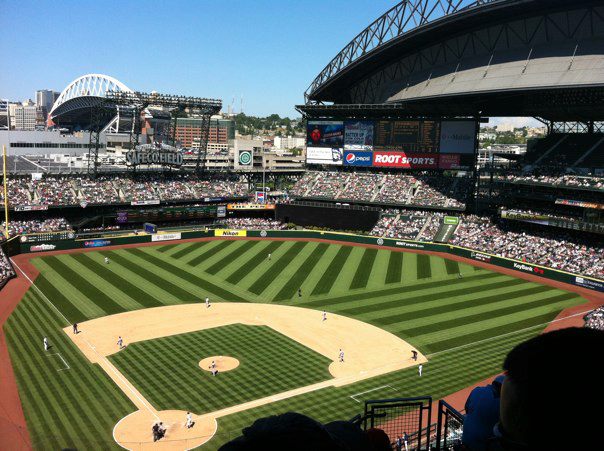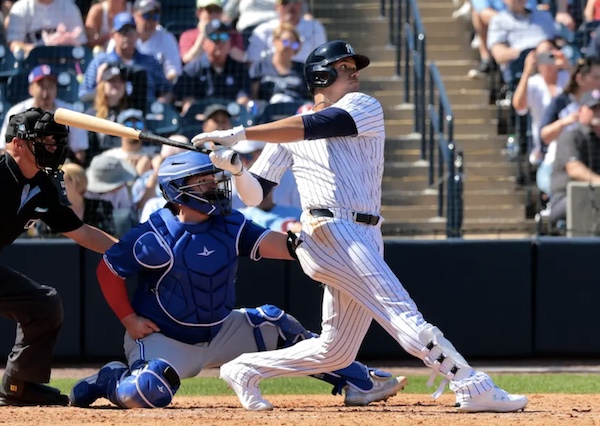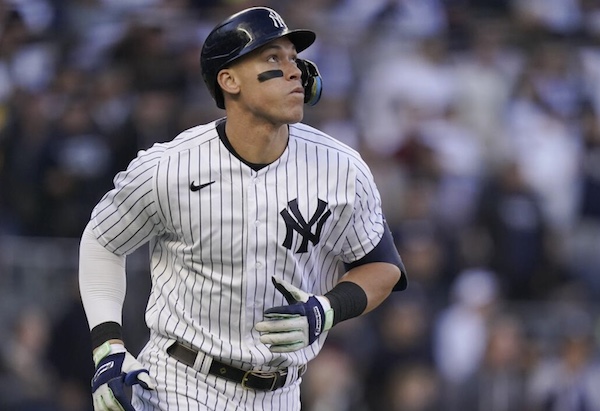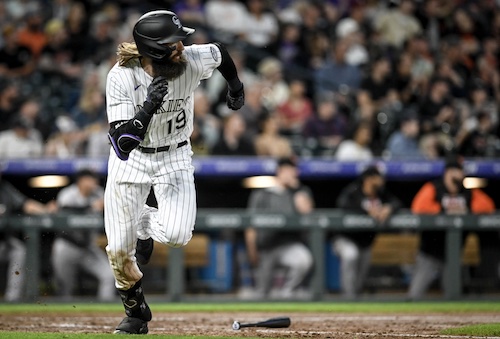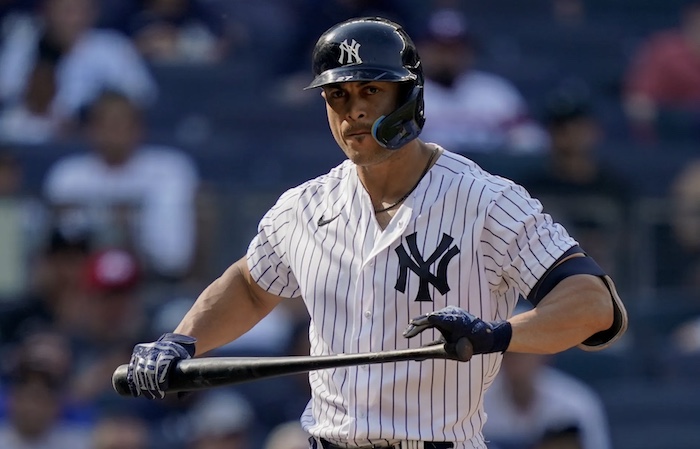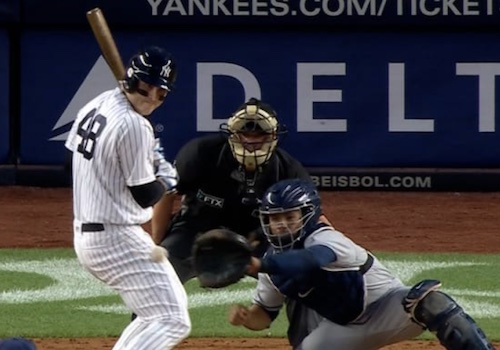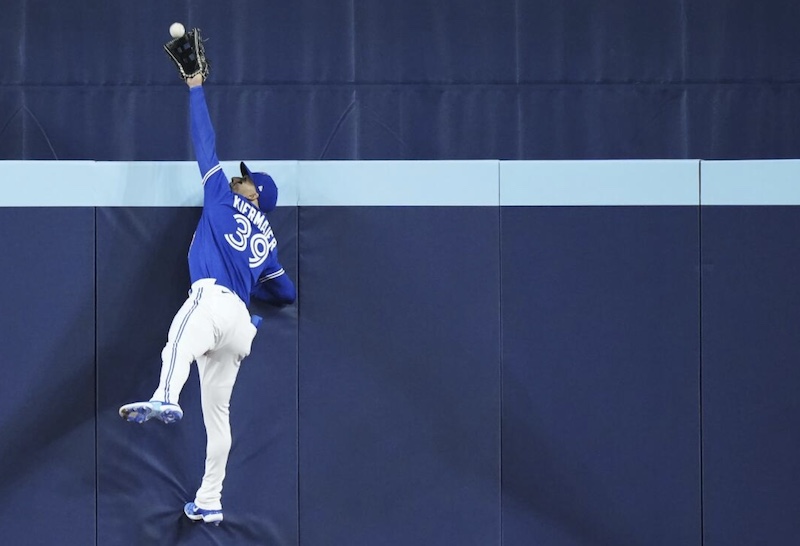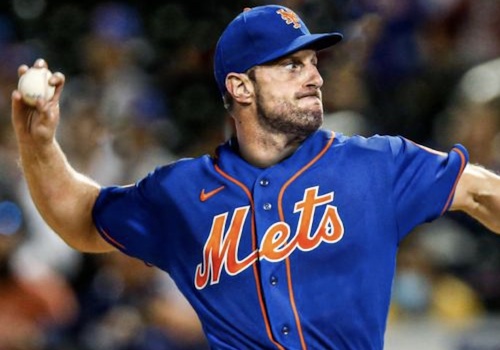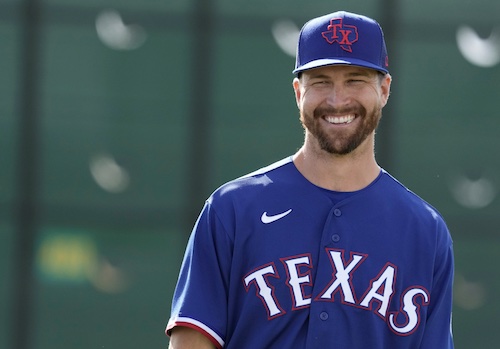Baseball posts
Friday April 12, 2024
Stumbling Toward Vegas
In his Friday column, Joe Posnanski takes questions from “brilliant readers” as he calls them, mostly about the start of the season. Are the Astros really this bad? Are the Royals really this good? I was going to say something snide about Pos staying away from any mention of the Seattle Mariners, his dark horse to win the AL West, even as they started the season 4-8 (and looked worse); but then he included a takedown of Oakland A's owner John Fisher that just made me smile:
Will the A's ever play in Las Vegas?
I'm putting the percentage chance at 50. And falling.

It is stupefying—utterly stupefying—just how badly A's owner John Fisher has bungled things every single step of the way. I mean, you would think he would get something right by mistake. The latest fiasco involves the A's decision to play the next two years or three years or four years or 100 years in Sacramento, in a 14,000-seat, minor league ballpark that they will share with the Giants' Class AAA River Cats.
Sure, it takes quite the mastermind to cut a deal to play Major League Baseball in a shared minor league stadium in Sacramento. But, beyond that, Fisher had to share his excitement about how everyone in Sacramento (a few thousand at a time) would soon be able “to watch some of the greatest players in baseball, whether they be Athletics players or Aaron Judge and others launch home runs out of this very intimate, most intimate park in all of Major League Baseball.”
There are so many incredibly dumb statements in those few words that, honestly, I'm kind of in awe.
Pos adds that MLB should have forced Fisher to sell the team long ago but sadly that shipped has sailed. Joe's gut tells him the A's won't wind up in Vegas, but adds, “John Fisher does seem to have fully developed his failing upward act, and I'd say there's probably a 50-50 shot that by simply being super-rich and owning one of 30 big-league clubs, and being part of a sport that seemingly wants to go all in on gambling, he will somehow stumble his way into Vegas.”
Stumbling Toward Vegas would make a good title for a book on Fisher's ineptitude. Maybe wrap in some Yeats while you're at it.
Thursday March 28, 2024
Opening Day 2024
Tuesday March 26, 2024
Rise vs. Surprise: What's Good for Baseball?
Joe Posnanski is in the midst of counting down all the MLB teams from worst (Rockies, right? Right) to best (Braves, probably), and today he landed on No. 14, the Arizona Diamondbacks. With each team, he starts out with an anything topic that's usually fun and fun to read before getting to the nitty-gritty: who's good, who might be good, what's working and what isn't. The anything topic is just where his mind goes with that particular team, and today it went to: Were the D-Backs the most suprising team this century to win the pennant? No other pennant winner this century has had a negative run differential, for example, so they're certainly in the running. Last season, they eked into the post, had a good run—through Brewers, Dodgers and Phillies—and made it to the Series. Pos then goes into our two baseball seasons: the long, 162-game one, where the best teams rise, and the short sprints of October, where teams like the D-Backs can surprise.
And he asks: Is this good for baseball?
He asks because he doesn't think it is. Those two types of seasons are fine for other sports, but other sports always get to play their best players (unless injured), and that's not baseball, certainly not with pitchers. He writes:
If you're going to make baseball a playoff sport, then do it—140-game season, eight playoff teams in each league, 15 seven-game series filling September and October, just go all in. This will allow more teams to try and have Diamondback-like runs to glory.
And if you want to keep the 162-game season at the center of the sport, and better reward the teams that play well throughout, then scale back the playoffs to four teams in each league and have them play a seven-game series in October.
I'm with Joe on this, but I think the current Lords won't cut back on either revenue stream (reg. season or playoffs), and so won't fix the problem.
Monday March 04, 2024
Don Gullett (1951-2024)
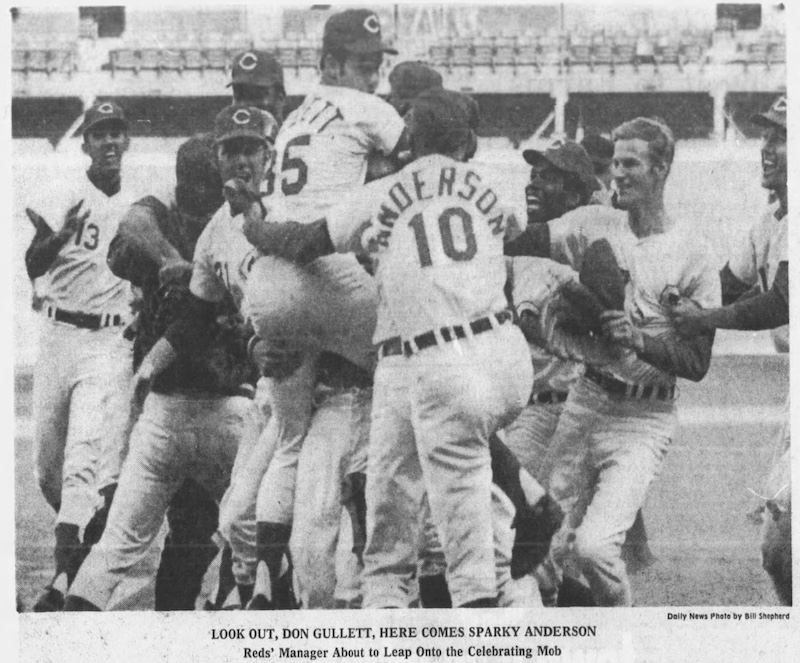
Clinching the pennant, age 19.
When I was a kid I'm pretty sure I kept getting Don Gullett and Don Sutton mixed up. I was in an American League city, they were both National League pitchers, and their names weren't dissimilar: Don and then two syllables: Uht-en or Uhl-et.
Talk about opposites, though. Sutton is the quintessential longevity Hall of Famer. He led the league in Game Starts once, ERA once, and never finished higher than third in Cy Young voting; but he kept plugging away: 15-13, 14-12, 11-11. He debuted in 1966, bade farewell in 1988, and in every full season until the last he appeared in 30+ games.
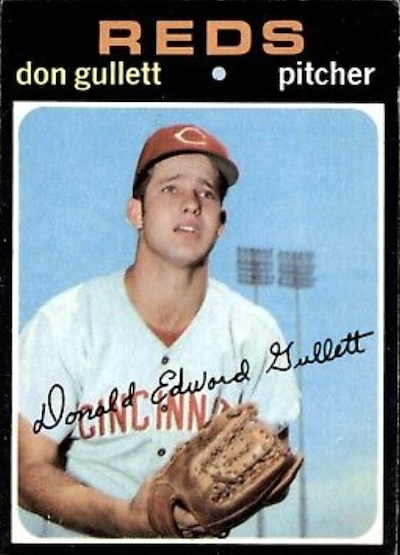 Gullett was more nova. He debuted in 1970 at age 19 and was done by age 27. Twenty-seven! What a rip. But in his nine seasons he pitched six times in the postseason, and in five of those the World Series: Reds in 1970, '72, '75 and '76, and, after signing a $2 million dollar deal, with the Yankees in '77. He last pitched July 9, 1978 vs. Milwaukee. He didn't get out of the first inning. It went: flyout, single, single, walk, walk (run), flyout, double (two runs), walk, walk (run), and that was it. He last faced Buck Martinez and he was replaced by Bob Kammeyer. And that was it. There would be fingers-crossed press reports about him in the NY papers for a few years but the fingers never uncrossed.
Gullett was more nova. He debuted in 1970 at age 19 and was done by age 27. Twenty-seven! What a rip. But in his nine seasons he pitched six times in the postseason, and in five of those the World Series: Reds in 1970, '72, '75 and '76, and, after signing a $2 million dollar deal, with the Yankees in '77. He last pitched July 9, 1978 vs. Milwaukee. He didn't get out of the first inning. It went: flyout, single, single, walk, walk (run), flyout, double (two runs), walk, walk (run), and that was it. He last faced Buck Martinez and he was replaced by Bob Kammeyer. And that was it. There would be fingers-crossed press reports about him in the NY papers for a few years but the fingers never uncrossed.
He retired with a 109-50 mark and a 3.11 ERA. In his Gullett obit, Joe Posnanski trots out this list of the best winning percentages for pitchers who won 100 games by age 27:
- Roger Clemens, 116-51, .695
- Don Gullett, 109-60, .686
- Dwight Gooden, 142-66, .683
- Jim Palmer, 122-57, .682
- Pedro Martinez, 107-50, .682
Poz also mentions this:
Don Gullett was a private person. He was a farmer after he finished playing, he and Cathy had three children. He was the only major Big Red Machine player who declined to talk with me for my book The Machine. He was kind about it. He just said that he didn't really want to look back and didn't think he could add anything. “Other people remember better than I do,” he said.
When he debuted at age 19, players were agog. Willie Stargell said “He could throw a ball through a carwash without it ever getting wet.” Pete Rose said the same thing. He was on the mound, age 19, when the Reds clinched the pennant against the Pirates in 1970. He was the pitcher who set up the incredible Game 6 of the 1975 World Series by shutting down the Red Sox in Game 5—going 8 2/3 while giving up 2 in a 6-2 victory. He was the Game 7 starter, too, before Merv Rettenmund pinch-hit for him in the top of the 5th. He left, down 3-0, but—and you may have heard this—the Reds came back to win it, 4-3, for their first championship since 1940. They won again the following year. He didn't pitch well for the Yankees in the '77 postseason but he got another ring with them. Then the injuries piled up and he couldn't come back from them.
Apparently, growing up in Kentucky, he was some kind of all-around athlete. Posnanski mentions a high school football game where Gullett rushed for 410(!) yards and scored 11(!) touchdowns. In high school basketball, he averaged 22 points a game. “As a pitcher in his senior year,” Poz writes, “he struck out 120 batters in 52 innings and threw a perfect game where he struck out 20 of the 21 batters he faced.”
He died earlier this month, age 73. No cause mentioned. Private to the end.
Monday February 19, 2024
Brant Alyea (1940-2024)
I remember his card more than him. He came to the Minnesota Twins in my first baseball heyday, 1970-71, and had a good first season and a great first month, but he didn't break through the Killebrew-Oliva-Carew-Tovar-Cardenas collective for me. But I was happy to get his card. He was a Twin.
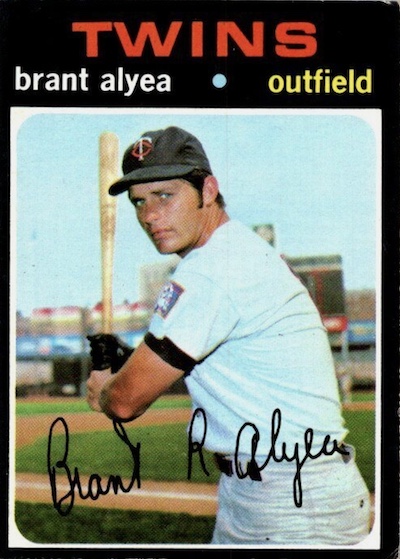 Alyea, it turns out, was a big bopper in the minors who first played in the Majors for the Washington Senators (II). On Sept. 12, 1965, in his Major League hitting debut, he pinchhit for Don Blasingame with one out and two on in the 7th and the Senators ahead of the Angels 3-0. And he went deep off Rudy May. On the first Major League pitch he saw. How do you like them apples?
Alyea, it turns out, was a big bopper in the minors who first played in the Majors for the Washington Senators (II). On Sept. 12, 1965, in his Major League hitting debut, he pinchhit for Don Blasingame with one out and two on in the 7th and the Senators ahead of the Angels 3-0. And he went deep off Rudy May. On the first Major League pitch he saw. How do you like them apples?
Apparently the Senators didn't. Or they saw a weakness in his game. Or they were just dumb. Because after that not-bad cup of coffee (.231/.286/.692 in eight games), he didn't make the squad again until July 1968. And in late March 1970 he was traded to the AL West champion Minnesota Twins for Joe Grzenda and Charlie Walters—two other Twins I don't recall much about.
Alyea must've felt freed from Senatorial shackles because with the Twins he had an April for the ages: .415/.483/.774, including 5 homeruns and 23 RBIs in 17 games. He became the talk of the Twin Cities and made the cover of Sporting News in early May. 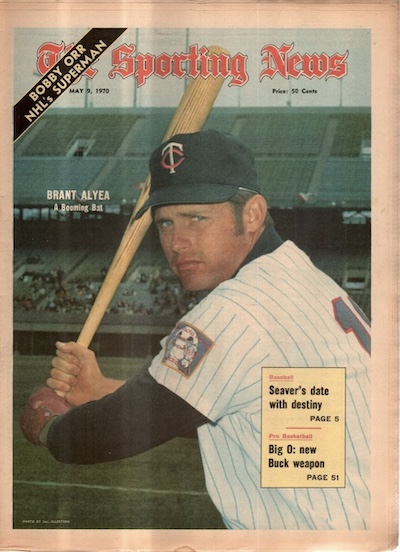 And then, well, a little regression to the mean. But a nice 1970 season: .291/.366/.531. He drove in 61 and hit 16 homers in 94 games. I guess he and Jim Holt platooned in left. But by then he was already 30, and he either aged fast, got injured, or the league figured him out, because the next year his line was not good: .177/.282/.241. His power was gone: 28 hits and just six for extra bases.
And then, well, a little regression to the mean. But a nice 1970 season: .291/.366/.531. He drove in 61 and hit 16 homers in 94 games. I guess he and Jim Holt platooned in left. But by then he was already 30, and he either aged fast, got injured, or the league figured him out, because the next year his line was not good: .177/.282/.241. His power was gone: 28 hits and just six for extra bases.
That November he was a Rule 5 acquisition by the Oakland A's, who traded him to the Cardinals in May 1972, and then this line on Baseball Reference: “Brant Alyea returned to original team on July 23, 1972.” What does that mean? “Here, have him back”? Less than two years after he made the cover of Sporting News, he was out of baseball. Apparently he went on to run crap tables at the Tropicana Casino in Atlantic City. Shame he didn't last a little longer. With all those vowels in his name, he could've become a New York Times crossword staple. He died at home on Feb. 4.
Wednesday January 31, 2024
Postseason Droughts, .350, and the Ol' Doubles, Triples and Homers Question

Can Shohei do something nobody's done since Johnny Mize in 1941?
I meant to write this in November, then got busy. And then the world fell apart. Now we're just a few weeks from pitchers and catchers. So let's look at the baseball questions that I (and maybe only I?) am interested in:
Did anyone hit. 350 in 2023?
Yes! For the first time in a full season since 2010, when Josh Hamilton hit .359, we had a .350 hitter in the Majors: my man Luis Arráez. He won the AL batting title in 2022 with my Minnesota Twins, hitting. 316, was traded to the Miami Marlins in the off-season, and promptly won the NL title with a .354 average. Don't think that's ever happened before—i.e., winning a title, traded, winning another title. It's rare enough to trade a batting champion, though I guess the Twins did it before under different circumstances. In 1978, Rod Carew won his seventh batting crown with the Twins, hitting .333. Then in the off-season Twins owner Calvin Griffith got drunk at a Lions Club meeting in Waseca and spewed racist BS and called Carew “a damned fool” for accepting below-market value. Carew demanded a trade and got one—to the California Angels, where he continued to excel, hitting .314 over seven seasons, but never won another crown.
Arráez was hitting .400+ as late as June 24, and ended July at .381, so there was actually .400 talk. Then August hit and he didn't; just .236 for the month. But he recovered in September to get above .350. That .350 drought between 2010 and 2023 (for full seasons) is the longest in MLB history. By far. It's 11 seasons, leaving aside the COVID-shortened 2020 campaign. The previous record was five seasons: 1962-66.
Oh, and the last guy to hit .360 in a season? Also a Twin: Joe Mauer in 2009. For those scoring at home.
Is anyone closer to becoming the first player since Johnny Mize to lead the league in doubles, triples and homers at some point in their career?
Yes! And guess who? SHOHEI. Big surprise. If someone is going to do something that hasn't been done in MLB in nearly a century, Shohei always seems to be the guy.
Here's the background on that stat. Only seven players in modern MLB history (sans 19th c.) have ever led the league in all three extra-base categories—doubles, triples and homers—during their careers, and, yes, Mize was the last to do it, completing the triumverate in 1941.
Here's the 2023 leaders in those three categories:
| DOUBLES | TRIPLES | HOMERS | |
| AL | Corey Seager (TEX) | Bobby Witt Jr. (KCR) | Shohei Ohtani (LAA) |
| NL | Freddie Freeman (LAD) | Corbin Carroll (ARI) | Matt Olson (ATL) |
Freeman is a doubles machine—he hit 59—and it's the fourth time he's led the league in the category. But he's never led in triples and homer. Ditto Kyle's kid brother, who led the NL in doubles in 2019. Witt Jr. and Carroll were both rookies, so obvious firsts for both of them. It's also the first for Matt Olson.
Shohei, meanwhile, is missing a category, doubles, that seems doable. Up to now, the active players with two of the three were either light-hitting guys that needed homers (Whit Merrifield and Cesar Hernandez, and the latter didn't play last year and seems done), or they were aging slowpokes that needed triples (Nolan Arenado, Bryce Harper).
But Shohei, an impressive combo of power and speed, has already led the league in triples. He did it in 2021 and nearly did it again last year. Add the HR title and he just needs doubles. One wonders if he actually has too much power and too much speed to do this. Mantle and Mays were two such guys who never did the doubles thing. Shohei's career high is 30, from 2022, and that's not going to lead anything, particularly with new teammate Freddie Freeman around. Still, he's got a better shot than Bryce Harper has with triples or Whit Merrifeld with homers. I'll be watching to see if he does it.
Which team has the longest postseason drought?
For a number of years, this belonged to my Seattle Mariners, who went in 2001 and then not again until 2022. Now it's a tie between the Tigers and Angels. Both last went in 2014. After that? Pirates and Royals, both of whom last went in 2015. The Royals, of course, won it all in '15 so that takes some of the sting out. The Pirates? Oof...
Which team has the longest pennant drought?
Still my Seattle Mariners, born in 1977 and pennantless ever since. A close second is the Pittsburgh Pirates, who last saw the World Series in 1979.
Which teams haven't won a pennant this century?
Nine teams: M's (n/a), Pirates (1979), Brewers (1982), Orioles (1983), Reds (1990), Athletics (1990), Twins (1991), Blue Jays (1993) and the Padres (1998).
Which team has the longest World Series championship drought?
Still the Cleveland Indians, who have not won it since 1948, though they've been four times since: 1954, 1995, 1997 and 2016. Then it's a big jump to the Padres and Brewers (b., 1969). Then You-Know-Who.
Which teams have never won the World Series?
A year ago there were six. Now, thanks to the Rangers great October run, there are five: Padres and Brewers (b., 1969), Mariners (1977), Rockies (1993) and Rays (1998).
Sunday January 14, 2024
Bud Harrelson (1944-2024)
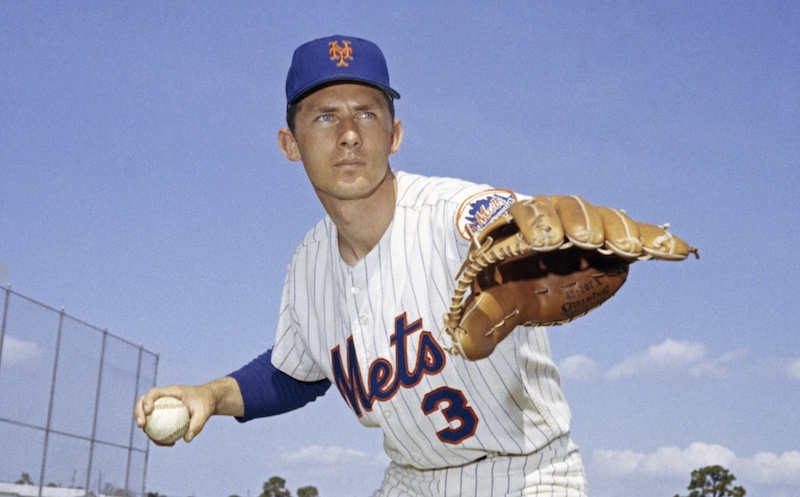
Bud Harrelson was born on D-Day, June 6, 1944, and spent much of his life battling. In the 1973 NLCS, to give a famous example, the Mets and the Reds were tied one game apiece, but in the third game the Mets were up 9-2 (they would eventually win the series in five), and with one out in the top of the 5th, Pete Rose lashed a single. Then Joe Morgan ground into a double play. End of inning. Except as Harrelson was turning the DP at second, Rose came in hard, the two exchanged words and then threw punches. Benches cleared.
Harrelson, it should be added, was not exactly a big man. His 1973 Topps baseball card lists him as 5'11“, 155. Pete Rose, that same year, is listed as 5'11”, 195. The difference is apparent in a photo of the incident:
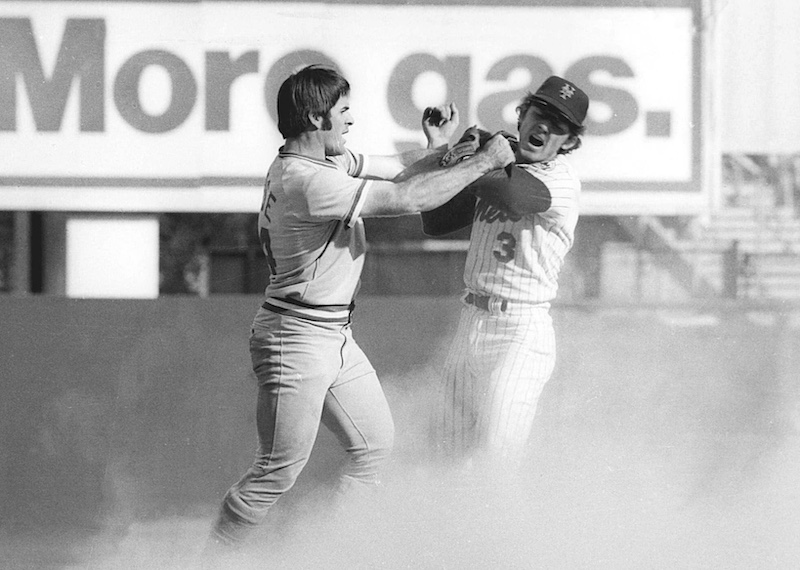
I always hated Pete Rose because he seemed like a bully to me (cf., Ray Fosse), and this did nothing to discourage that feeling. It also made me like Bud Harrelson all the more. He was small, like me, but he took no shit. The world is full of people like Pete Rose, too stupid or driven (or both) to know what bullies they are, and it's nice when someone who looks like us has grit enough to stand up to them.
He exemplified the shortstops of the era. Ernie Banks came along in the 1950s, hitting homeruns, but he was an anomaly. Robin Yount and then Cal Ripken followed in the 1980s, changing things a bit, and then the triumverate of A-Rod, Jeter and Nomar changed things forever in the 1990s. But when I first started paying attention to the game, in the early 1970s, shortstops were thin, light hitting, and good fielding, and Bud was all of the above. Here's a comparison of the lifetime stats of some of the era's perennial All-Stars, sorted by career homeruns:
| NAMES | BA | OBP | SLG | bWAR | HRs |
| Bud Harrelson | .236 | .327 | .288 | 20.3 | 7 |
| Don Kessinger | .252 | .314 | .312 | 8.9 | 14 |
| Mark Belanger | .228 | .300 | .280 | 41.0 | 20 |
| Bert Campaneris | .259 | .311 | .342 | 53.1 | 70 |
| Dave Concepcion | .267 | .322 | .357 | 40.1 | 101 |
Yes, Bud managed just seven career homeruns, didn't slug .300, but among the five had the highest OBP. It's nearly 100 points higher than his batting average.
(BTW, how good of a fielder was Mark Belanger? Look at his career batting splits and then look at his bWAR. That good. Campy's 53.1 bWAR, meanwhile, should be getting him into more Hall of Fame discussions.)
Bud, it turns out, was the starting shortstop for that great 1971 All-Star Game when Reggie Jackson nearly destroyed Tiger Stadium with a homerun, and six future Hall of Famers, all all-time greats, hit homeruns. Here they are in the order of when they went deep: Johnny Bench (2nd inning), Henry Aaron (3rd), Reggie Jackson (3rd), Frank Robinson (3rd), Harmon Killebrew (6th), Roberto Clemente (8th). Split evenly between AL and NL, but the AL homers were all two-run shots and they won it 6-4. A rare victory back then for them. I just love that light-hitting Bud Harrelson was the starting shortstop for this game. If he looked around he saw Bench behind the plate, Willie McCovey at first, and a starting outfield of Henry Aaron, Willie Mays and Willie Stargell. Wow.
After his death on Thursday, from Alzehimer's complications at age 79, I was reading obits and honorariums, and checking out the images online, including Topps cards, 3-D cards, and Milk Dud images, when I came across Bud on the cover of Sports Illustrated in 1970. Look who's at his feet.
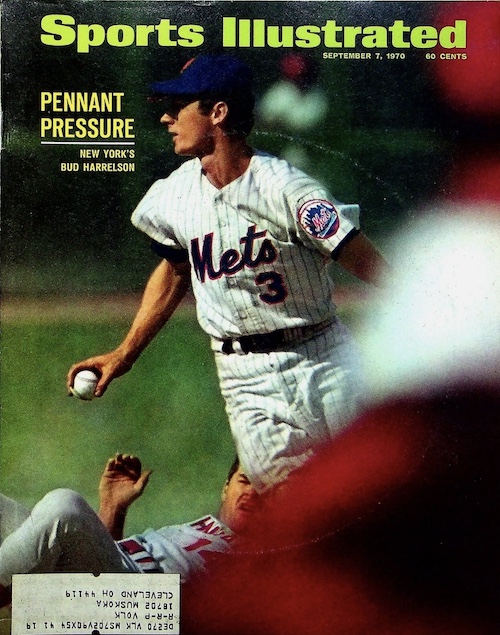
Friday November 17, 2023
Hangover IV
Yesterday, every team in Major League Baseball approved the move of the Oakland Athletics to Las Vegas. It is the third Oakland team in the last four years to bolt the city:
- 2019: Golden State Warriors —> SF
- 2020: Oakland Raiders —> Las Vegas
- 2023: This
In celebration, on Threads, the A's organization posted the following:
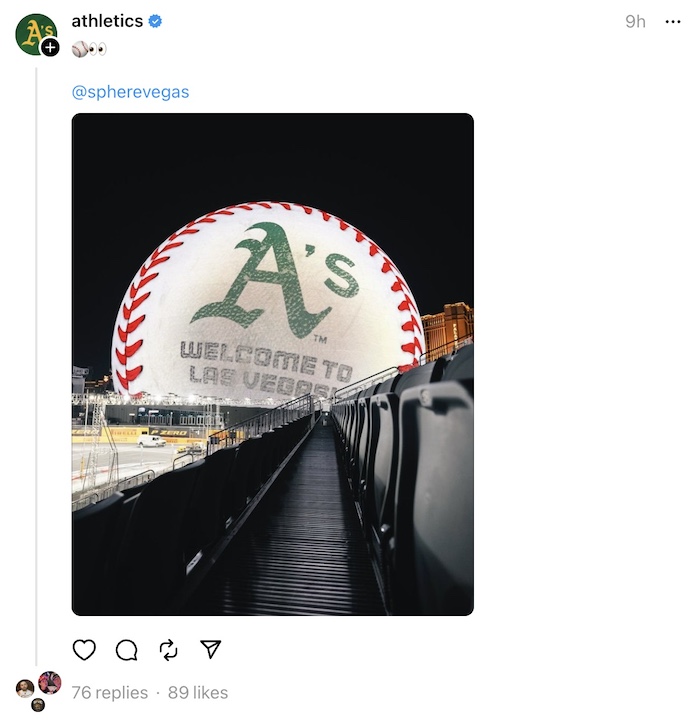
A's social media coordinator: Oooh, 76 replies! Fun! Let's see what we got! Dum da dum da dum... *Click*
- fuck you
- MLB only cares about profits. They care nothing about the fans.
- Fuck you x2
- Never. I will not visit even for a Giants game
- Fuck you
- Not a fan of the As but this is a big f u to the fans in Oakland. The bad thing for the team as well is I have seen no people from Las Vegas saying they even care.
- Nothing to be proud of.
- Thanks for the virtual poke in the eye.
- Bad move. Horrible look. You will fail.
- Piss off!
- fuck off
- Fuck you.
Someone mentioned there wasn't a positive comment in the bunch—I certainly couldn't find one. Not even a sock-puppet account to say something good. The key, I think, is what one of the commentators mentions above: Nobody in Vegas cares. If anyone in Vegas notices. Apparently it's all about the gambling. I think of Sonny Corleone: “There's a lot of money in that white powder.” That's MLB now. “There's a lot of money in that addiction.”
Was Portland ever a consideration? I'm curious. Or is it too soccer-y these days? Or doesn't the city want to shell out the billions it costs to get to have nine men toss around a ball?
It's sad. When I was growing up, there were three great mini-dynasties: The Baltimore Orioles (1969-71), the Oakland A's (1972-74) and the Cincinnati Reds (1975-76). The A's probably weren't as good as the others, to be honest, but they did better: They won three World Series in a row. They're the only non-Yankee team to make that claim. And they were memorable. They grew long hair and moustaches, and wore kelly green and yellow unis, and Charlie Finley gave half the team nicknames: “Blue Moon” Odom, “Catfish” Hunter. They had the most exciting starting pitcher in baseball (Vida Blue), the game's first superduperstar (Reggie Jackson), and one of the game's first closers, a guy with a 19th century-era handlebar moustache (Rollie Fingers). Plus the staid regulars: Joe Rudi, Campy Campaneris, Dick Green, captain Sal Bando. They were so popular, comic books were made about them.
Then there's the Bash Brothers of the 1980s, the “Moneyball” A's of the early 2000s, and then of course the 50 years of Connie Mack baseball. And they won! In terms of overall championships, the A's are tied for third with Boston: nine each. They tended to have rashes of success followed by decades of doldrums: 1910-1914; 1929-1931; 1972-74; 1988-1990. “Moneyball,” for all its hype, never even got them back to the World Series.
They kept going west, young man: from Philadelphia to Kansas City to Oakland. Now Vegas. Three steps forward, one step back.
Thursday November 02, 2023
And Then There Were Five

The Texas Rangers celebrate winning the first World Series in franchise history after beating the Arizona Diamondbacks 5-0 last night.
I feel a little like Flat Nose Curry, the member of the Hole in the Wall Gang played by future “Police Woman” actor Charles Dierkop, who, after the KNIFE FIGHT(???) between Butch and Harvey (“Adams Family” actor Ted Cassidy), runs up to Butch, the surprise winner, and exults:
Flat Nose: I was really rooting for ya, Butch!
Butch: Well, thank you, Flatnose. That's what sustained me in my time of trouble.
That's me after the Texas Rangers won the World Series last night. I was really rooting for ya, Texas! Well, only after the Mariners were knocked out, of course. And I guess I was iffy on the Rays series, and definitely wanted the Orioles in there, and at times, with Houston, it was like, “A replay of 2022, Houston/Philly, wouldn't be too bad.” And once the Series started, I mean, I do like Ketel Marte.
But I was really rooting for ya, Texas!
OK, so Texas I have no use for, particularly electorally, since it's anti-American and pushing us toward fascism. But Adolis Garcia and Corey Seager, the fire-and-ice of the club? And Dad-bod model Jordan Montgomery, Bradley Cooper doppelganger Nathan Eovaldi, and the eerily quiet and calm and beautiful Jose Leclerc? And above all Evan Carter, the kid who went from AA ball in August, to AAA in September, to making his Major League debut on Sept. 8 against Oakland (the shallow end of the pool), and for the rest of the season went .306/.413/.645, and in the postseason kept hitting doubles and climbing the ladder of the batting order until he was ensconsed in the Griffey spot, third, the spot of all spots, and handled it all with aplomb? Well, those guys were fun.
The Texas Rangers, began, of course, as the second iteration of the Washington Senators, and followed the great tradition of the first by being first in war, first in peace and last in the American League. I've posited that no team began as ineptly as the Seattle Mariners, who didn't poke their head above .500 until their 15th season, and still haven't won a pennant after 47 mostly meh years, but Texas has an argument. They lost 100+ games each of their first four seasons, so didn't poke their heads above .400 until Season Five. They did get to .500 sooner, going 86-76 in 1969 under new skipper Ted Williams, but the next season, with the same skipper, they were back underwater. They moved to Texas in '72 and show the fans there what they were all about by losing 100+ their first two seasons. Then they got Billy Martin as manager and had a winning season. Then they lost Billy Martin and submerged again.
This is brutal: they didn't make the postseason until 1996—their 36th season—and didn't win a postseason series until 2010. That was the year they won their first pennant but lost the WS in five to the Tim Lincecum-led San Francisco Giants. But the next year was theirs ... until it wasn't. They were one out away from a title but Nelson Cruz couldn't track down David Freese's line shot into the corner and it went into extras and they kept running into David Freese and at the end it was the Cardinals with their 11th title rather than the Rangers with their first. In the mid-2010s, they made the postseason a few years in a row but were at the tail-end of the Jose Bautista bat flip, and never got into the ALCS. Two season ago, they lost 100+ again. Last season they lost 90+. Then they hired Bruce Bochy as manager.
I've been wondering a lot lately how much a manager helps. They're not like football or basketball coaches, forever drawing up plays and new strategies, but Bochy seemed like a good guy to play for: calm, smart, he liked his gum. Joe Posnanski's Poscast prediction about Texas last March was something along the lines of “I think they're good?” He saw them leading the division but stumbling after June. Turns out they led the division but stumbled after August, then righted themselves, then lost the division on the last game of the season—to my Mariners, playing for pride—meaning rather than resting up they had to take on the Tampa Bay Rays who had home-field advantage. But these Rangers turned “home-field advantage” on its head. They didn't lose an away game the entire postseason. Took two from Tampa Bay in Tampa Bay, beat the O's twice of two in Balmer, beat the Astros four of four in Houston, and came into Phoenix tied 1-1 with the D-Backs and swept the table. Pretty amazing run.
So who's left among the have-nots, the scroungy and sad and title-less teams? These five:
- Brewers (est. 1969)
- Padres (est. 1969)
- Mariners (est. 1977)
- Rockies (est. 1993)
- Rays (est. 1998)
The Rangers finally won it in their 63rd season, which is the third-longest any team has taken—after the Phillies (78 seasons), and the Browns/Orioles (64 seasons). Celebrate, Texas, because you can. I feel a little badly for the D-Backs, and for former M's closer Paul Sewald, so good in the playoffs, so not in the World Series. I feel a little badly, too, or bemusedly badly, for the likes of Evan Carter. I hope he knows runs like this are rare beasts. I hope someone tells him, “You know, it's not usually like this around here.”
Tuesday October 31, 2023
Frank Howard (1936-2023)
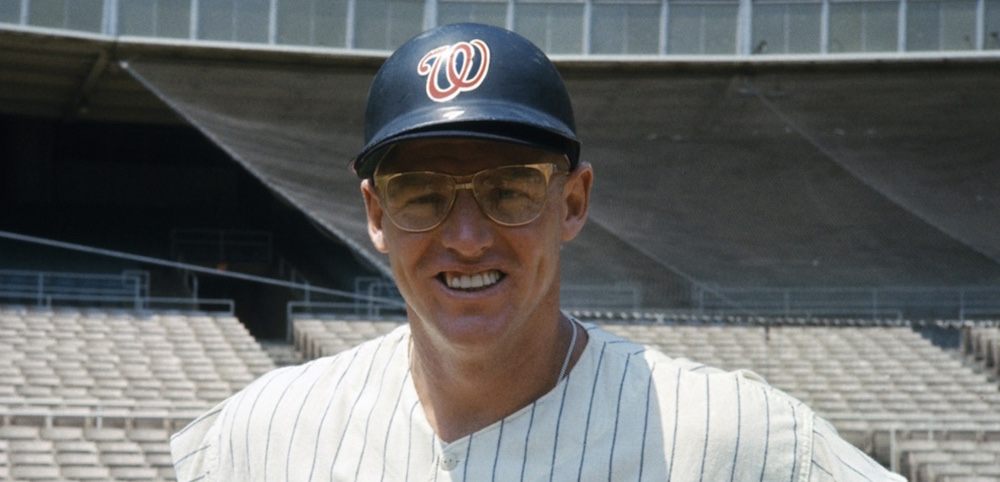
I grew up fearing Frank Howard. Not because of his size—though at 6' 7, 270, he was one of the biggest position players to ever play the game, today included—but because in my early baseball-watching and baseball-card-collecting days he always competed with my man Harmon Killebrew for the AL Homerun and RBI crowns. I hated getting one of those AL Leader cards with Frank on top.

Ironically, Frank's career high in homeruns came in 1969, with 48, but Harmon hit 49 that year and won the MVP. His only one. Frank finished fourth, his highest finish.
(And yes, the AL was awfully white back then, particularly compared to sluggers in the NL. The direction each league went in the late 1940s was still being felt in 1970.)
Both Frank and Harmon fell off about the same time, and rather quickly. In 1970 they were at the top, and then it all went away. Or it dropped a bit, then dribbled away as it tends to. Frank's HR totals went from 44 to 26 to 10, then he hit 12 more with the Tigers and was done; he retired after the '73 season. He later became a coach and briefly (very briefly) a manager: Padres for 110 games in '81, Mets for 116 in '83. He never had a winning record as a manager. Not many wins as a player, either, though he came up with a winning team, the LA Dodgers, and won Rookie of the Year in 1960; and in the 1963 World Series he mashed a monster double off Whitey Ford in Game 1, then a monster, second-deck home run off Whitey Ford in Game 4, and that last one was the margin of victory in a Dodgers sweep. But in December 1964, the Dodgers, feeling they needed pitching (!), traded Frank and others for Claude Osteen and others and cash, and Big Frank spent his glory years with the abysmal Washington Senators, who, though they were the second iteration, still fit the first's tagline: first in war, first in peace, last in the American League.
In '69, though, Ted Williams became his manager, and though he's usually not given much credit as a manager, or coach, Frank does just that. “He was just light years ahead of everybody,” Frank told a Washington Nats blog in 2007. “He didn't mess much with you mechanically—if you had played 6-8 years in the big leagues—unless you had absolutely no success. Then he would make some mechanical changes for you. But he never messed with your head. He was a thinking man's hitter.”
What he did with Frank was get him to take some pitches, to tighten the zone of what he'd swing at. And this is what happened. Look at how his walks jumped and strikeouts subsided.
| Ks | BBs | AVG | OBP | SLG | |
| 1968 | 141 | 54 | .274 | .338 | .890 |
| 1969 | 96 | 102 | .296 | .406 | .976 |
| 1970 | 125 | 132 | .283 | .416 | .962 |
Here's Frank's NY Times obit, with the hed/sub below, and oops they did it again:

I'm referring to the end of the sub. Sure, Big Frank struck out a bit (he had a big strike zone), and when he retired he was fifth on the all-time list—behind some all-time greats: Mantle, Killebrew, Mays and Mathews—but he only led the league in Ks once, and was in the top 10 only three times. His strikeout rate was more than 19%, which is up there for the time but would pale compared to those who came later: Reggie (22.7%), Thome (24.7%), Ryan Howard (28%), Chris Davis (32.9%). Just seems like an odd thing to bring up in an obit. But Times' obits have done this before: Bud Grant, Jim Fregosi, Fred Snodgrass.
Frank was nicknamed “Hondo,” after the John Wayne character, and was called “The Washington Monument,” and “The Gentle Giant,” and apparently (like Killebrew) was. He was a nice guy. He came on the Hall of Fame ballot in 1979—same year as Willie Mays—got a total of six votes and was done. He deserved better. Joe Posnanski has written a nice tribute about attending a game at Cleveland Municipal Stadium when he was 10 with his immigrant father:
And Dad put his hand on my shoulder and pointed toward the first base coaching box, and said, “Look! There's Frank Howard!”
Two things stand out in my recollection. One was how big Frank Howard looked. He was the biggest human being I'd ever seen. In his peak playing days, Frank Howard was 6-foot-7, 270 or so pounds, but by the time I saw him there in the Milwaukee coaching box, he was probably 50 or 60 pounds heavier. To me, he looked even bigger than that. Hondo absolutely towered over Cleveland's first baseman, Andre Thornton, who I had thought of as one of the biggest men in the world.
The second thing that stands out is the reverence in my father's voice. "There's Frank Howard! He said it like we were stargazing, and he was pointing out Ursa Major.
Saturday October 28, 2023
Comm. Poz
We had a good Game 1 of the 2023 World Series last night. The Rangers scored early with some nice hitting and baserunning from Evan Carter, who, two months ago, was playing AA ball and now is batting third for the American League champions. How do you get a better story than that? Maybe with Corey Seager's 2-run, ninth-inning, game-tying bomb of a homerun? (That's more emotion than I've ever seen from him.) Or Adolis Garcia's opposite-field walk-off in the 11th after being hit by yet another pitch? (That's about the same emotion I see from him.) He keeps getting hit by pitches and then keeps mashing homeruns. You wonder when they'll stop hitting him with pitches.
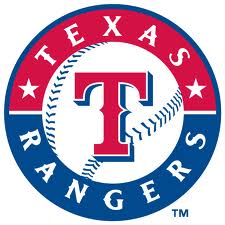 Joey Poz (not Joey Pants) goes deep on Adolis in his column today, worth reading, fun reading, but I wanted to quote some from one of his posts earlier this month, way back on Oct. 4, when he indulges himself a bit by talking about what he'd do if he were Commissioner of Baseball. It's a question he gets asked often, he says, and his answer (he also says) is usually uninteresting because he takes it too seriously. He thinks too much of the fans and the limits of his power. So this is his answer if he didn't give a shit about any of that. Oddly, in speaking from the heart, he winds up speaking for this fan:
Joey Poz (not Joey Pants) goes deep on Adolis in his column today, worth reading, fun reading, but I wanted to quote some from one of his posts earlier this month, way back on Oct. 4, when he indulges himself a bit by talking about what he'd do if he were Commissioner of Baseball. It's a question he gets asked often, he says, and his answer (he also says) is usually uninteresting because he takes it too seriously. He thinks too much of the fans and the limits of his power. So this is his answer if he didn't give a shit about any of that. Oddly, in speaking from the heart, he winds up speaking for this fan:
I would work out a deal with Oakland, expand the game to Nashville and Montreal, create eight divisions, and I would have the eight division winners, and only the eight division winners, make the playoffs.
Eight is plenty of playoff teams for baseball. Heck, I could probably be talked into four.
I also would limit teams to 10 pitchers (this could be a gradual decrease over, say, five years), and I would come up with incentives to get starting pitchers to stay in the games longer, and I would be very public with my disappointment any time a manager took out a starter throwing a no-hitter or took out a hitter with a chance to do something historic, and I would get rid of the zombie runner, and I would work out a rule to stop position players from pitching so much, and I would bring back bullpen cars, and I would create Larry Doby Day, and I would make Opening Day in Cincinnati every year, and I would probably bring back the four-pitch intentional walk (to give fans the fair chance to boo), and I would ...
... It would be a busy first day.
Not to get all Molly Bloom about this, but: Yes, yes, yes, yes, YES!!!!
What would I do beyond this? I gotta give that some thought. That'll be a Comm. Lundy column.
Wednesday October 25, 2023
Wild-Card World Series
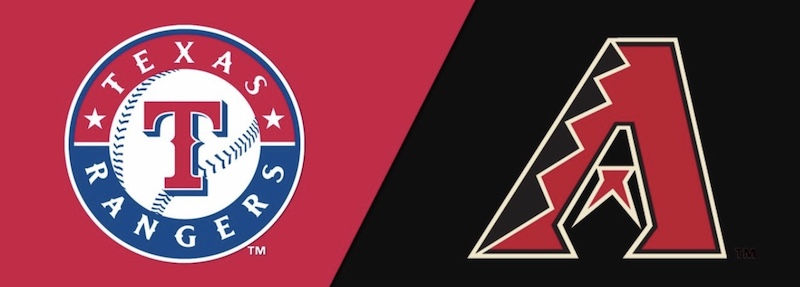
Not exactly the T&A the networks want to show.
“Paul Sewald shuts them down in the ninth to take the Mariners to the World Series!!!!”
What? Oh, the M's traded Paul Sewald to the Arizona Diamondbacks in July? And they're the ones going to the World Series? While my Seattle Mariners didn't even make the postseason? While we just missed the postseason? While we needed to win four of four against the Texas Rangers in the final weekend but only won three of four, and now those self-same Texas Rangers, whom we beat three of four, are facing off against the Arizona Diamondbacks for the title?
Yeah, sounds about right.
I didn't even get to NLCS MVP Ketel Marte being a Mariner, too. He came up through our system. We traded him in 2016. Fun.
I forget who I wanted to see in the World Series at the start of this neverending postseason (Baltimore vs....?) but by the time the LCS hit I was hoping for Texas/Philly. Almost got my wish. Unfortunately, in Game 7, Corbin Carroll brought his A-game (3-4, 2R, 2RBI, 2SB), while many otherwise otherworldly Phillies flailed: Turner, Castellanos, even Harper to an extent. The three of them in that final game went a combined 0-12, and worse, it felt like they would. It wasn't like, “Uh oh, here's Harper.” It was “Yeah, I don't think he's going to do anything.” He didn't even project menace. To be honest, I think he might be injured. And thus whatever mojo the Phils had at the start of all this stopped mojoing.
This is the second year of the new playoff system that's supposed to reward the long season by giving a first-round bye to the division winners with the best records, and thus far that reward looks unrewarding. No NL first-round bye team has won a division series or even forced a fifth game. It's been 100-win Braves and Dodgers teams both years, so maybe there's something wrong with those orgs that prevent them winning (or even competing in) short series? I don't know.
- 2022 NLDS1: Phillies (87-75) over Braves (101-61), 3 games to 1
- 2022 NLDS2: Padres (89-73) over Dodgers (111-51), 3 games to 1
- 2023 NLDS1: Phillies (90-72) over Braves (104-58), 3 games to 1
- 2023 NLDS2: D-Backs (84-78) over Dodgers (100-62), 3 games to 0
The AL, thanks mostly to Houston, has been different. Last season, they beat the Mariners 3-0, while the division-winning Yankees squeaked by the Guardians 3-2. This season, Houston beat the Twins (3-1) while the 101-win Orioles lost to the wild-card Rangers.
Many think the first-round bye is still a boon, and the above is too short a sample size. I think the above is too important to let lie for a larger sample size, but that's me. Either way, we now have an all-wild card World Series: the 90-win Rangers vs. the 84-win D-Backs. I'm backing the Rangers. They're one of six franchises to never win a World Series (chronologically by year of expansion: Rangers, Brewers, Padres, Mariners, Rockies, Rays), and I wouldn't mind if it was five. Plus Mariners fans could say we beat the World Series champions three of four in that final weekend of the regular season. That'll be our World Series. The way things are going, it may be as close as we get.
Thursday October 12, 2023
The Curse of the 100-Game Winners
The 2023 Minnesota Twins are done, losing their ALDS to the Houston Astros three games to one before a hometown crowd. Not welcome but not exactly unexpected.
The 100+ win Orioles are also done (three and out against Texas), as are the 100+ win Dodgers (three and out against Arizona), and the 100+ win Braves are on the brink, down two games to one to Philadelphia. These things were unexpected. Kinda.
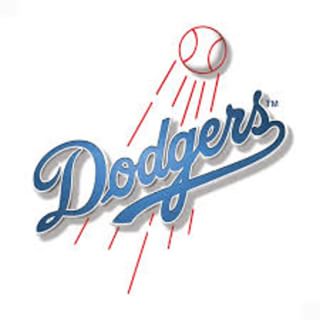 Last year, MLB restructured its playoff system to allow for two more teams, bringing the total up to 12; and to quiet concerns that this was making the long, 162-game season kind of irrelevant, they said the really good teams would get a bye in the first round so they wouldn't have to fight for their life in a best-of-three series. They could wait on the sidelines and watch. It's a reward!
Last year, MLB restructured its playoff system to allow for two more teams, bringing the total up to 12; and to quiet concerns that this was making the long, 162-game season kind of irrelevant, they said the really good teams would get a bye in the first round so they wouldn't have to fight for their life in a best-of-three series. They could wait on the sidelines and watch. It's a reward!
But is it? Here's Joey Poz yesterday:
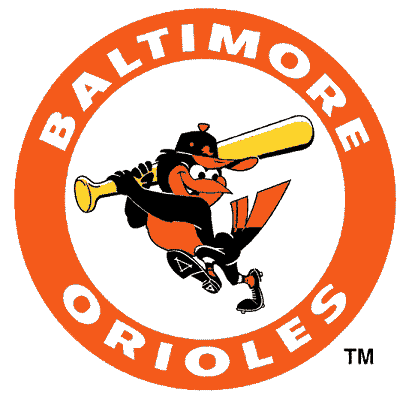
Sure, you get a first-round bye and the chance to line up your rotation... but you also have to sit around and get rusty for five days, which probably dulls the advantage (or perhaps, depending on who you're listening to, even puts you as a DISadvantage).
As of this moment, the five teams that won 92 or more games are 1-10 in the postseason, the one win being the Braves' miraculous comeback against the Phillies in NLDS Game 2.
And while he suggests that it may be a one-year blip, he adds, via asterisk, that in the NL last year, “the four teams that won 92-plus games went 3-10 in the playoffs, none of them winning a series.”
Wouldn't that be amazing? If, in restructuring the playoff systsem to give greater advantage to the better teams, MLB, in its continued quest for more postseason revenue, actually did the opposite?
This should be the No. 1 topic for baseball fans everywhere.
Friday October 06, 2023
Jim Caple (1962-2023)

Some deaths make me wonder where the hell I’ve been. Jim Caple was a fun, breezy sportswriter that I read often, and when he went away, or I went elsewhere, I didn’t notice. He was there, and then wasn’t, and how come I didn’t realize it? How could I not hold onto that? One of my faults is wanting to hold onto too much, so why couldn’t I hold onto that?
(Another fault is the exact opposite: just leaving; just dropping it all and holding onto nothing. I’m not saying it makes sense.)
Caple didn’t just write like a person, he wrote like a person you wanted to be friends with. Our paths kept criss-crossing: He grew up in the Pacific Northwest, then moved to Minnesota and covered the Twins; I grew up in Minnesota, then moved to the Pac Northwest and cheered on the Mariners. He was already a big-name sportswriter, a founder of ESPN’s Page 2 humor pages, and its Off Base columnist, when I was writing for an alternative Mariners mag, The Grand Salami; but he, now living back here, still agreed to do a regular column for then-publisher Jon Wells. “You got Caple?” I said, impressed. “How did that happen?” I got a compliment back from him, too. Once, after news broke in 2004 that “Laverne & Shirley” alum David L. Lander was scouting for the M’s, I wrote a column parodying the dumb moves of GM Billy Bavasi as if it were an old episode of “L&S,” with Billy in the Lenny role. I remember hearing from Jon how impressed Caple was with the column. Or maybe he was just impressed that I was able to reach back in the memory banks and somehow find Laverne’s catchphrase for dishy guys: Vodeo-doh-doh. Maybe it was just that. But that was enough.
Caple died Sunday night, age 61, from ALS and dementia. His nephew has a nice tribute here. His colleague at The Athletic has a nice tribute here.
Here’s Caple’s column on 50 years of baseball memories. Here he is on first gloves and Jack Morris. When Mariners broadcaster Dave Niehaus died in 2012, Caple quoted his nephew: “I didn't know him, but it feels like I did.” Same with Caple.
Thursday October 05, 2023
Tim Wakefield (1966-2023)
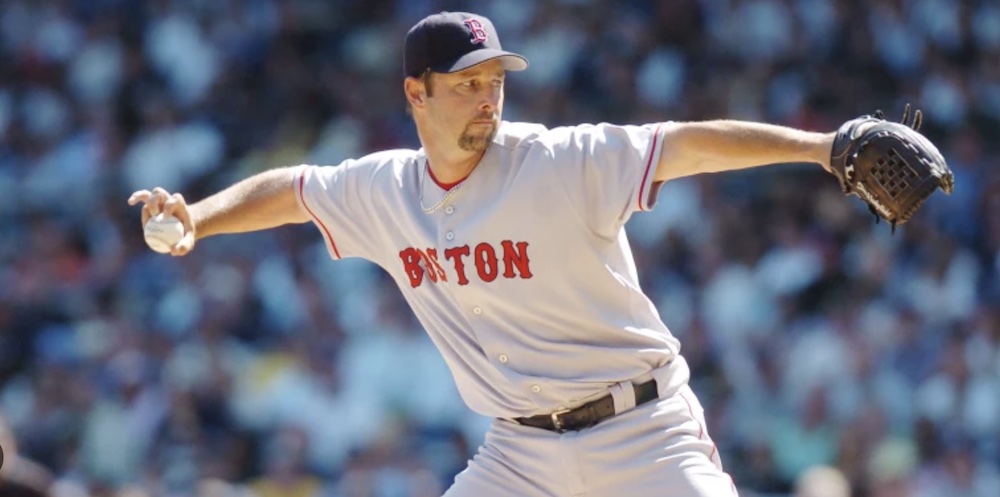
Ask a Red Sox fan about Tim Wakefield's postseasons in 2003 and '04, and he might go “sucked” and “rocked,” respectively. In the 2003 ALCS, Game 7, he gave up Aaron Boone's walkoff homerun in the bottom of the 11th to end the season for the Sox and send the hated Yankees, yet again, to the World Series. And in the 2004 ALCS, Game 5, with the season on the line, he kept the Yankees scoreless for three tense innings, allowing the Sox to come back in the bottom of the 14th to win the game and send it back to New York. It was a crucial link in the chain, one of many, in their unprecedented comeback from a three-game deficit to take the best-of-seven series and end the so-called “Curse of the Bambino.” So: 2003 negative, 2004 positive.
Overall, though, Wakefield pitched much better in 2003. He started ALCS Game 1, went 6 innings, gave up 2 runs, got the win. Started Game 4, went 7, gave up 1, another W. Then in Game 7 they brought him in to face the Yanks in the bottom of the 10th: Matusi, Posada, Giambi. Ground out, fly out, fly out. But the BoSox could do nothing with Mariano, and in the bottom of the 11th Wakefield faced Boone, who pinch-ran for Rueben Sierra in the 8th, then stayed in the game. And we know what happened.
2004, meanwhile, began bumpy. Game 1, Sox down 6-0, he pitched an inning and gave up two. Game 3, he came on in the 4th, down 9-6, and allowed 5 runs in 3 1/3 in a 19-8 Yankee blowout. Yet in the crucial Game 5, he held the line. And that's what we remember.
According to Joe Posnanski, Wakefield learned the knuckleball from his father. Or his father used the knuckleball to end games of catch he thought were going on too long. He figured making Tim chase after balls he couldn't catch was the way to do it. Instead Tim became intrigued with how to throw it, and mastered it, but never thought of it as anything more than a parlor trick. He was a first baseman at Florida Tech, drafted by the Pittsburgh Pirates, but couldn't hit A ball pitching and his career seemed done. And then? Then he was goofing around with his parlor trick and an old hand noticed.
Woody Huyke, who managed and coached in the Pirates organization for more than 30 years, happened to see it. Huyke had seen hundreds of players goofing off and throwing knuckleballs for fun, but Wakefield's knuckleball was something different, something explosive.
“I didn't say anything,” Huyke told the New Yorker's Ben McGrath. “I just played dumb. And then two days later we had an organizational meeting, because, you know, he was on the bubble as an infielder. I said, 'Before you let him go, I'd like to see him on the mound, 'cause he's got a good knuckleball.”
We could all use a Woody Huyke in life. Wakefield pitched for 19 years in the Majors, mostly for Boston, went 200-180 with a 4.41 ERA, and consternated batters and catchers alike with that explosive knuckleball. “And, as the famous line goes,” Posnanski writes, “Wake was a better person than pitcher. He won the Roberto Clemente Award for his work off the field. Cliches are cliches, but sometimes they are just true: To know Tim Wakefield was to love the guy.”
He died Oct. 1, age 57, brain cancer. The New York Times headline is like my Boston fan: “Pitcher Who Helped Boston Break the Curse...”
All previous entries
Baseball's Active Leaders, 2023
What Trump Said When About COVID
Recent Reviews
Everything Everywhere All at Once (2022)
Black Panther: Wakanda Forever (2022)
Doctor Strange in the Multiverse of Madness (2022)
Spider-Man: No Way Home (2021)
The Cagneys
A Midsummer Night's Dream (1935)
Something to Sing About (1937)
Angels with Dirty Faces (1938)
A Lion Is In the Streets (1953)
Man of a Thousand Faces (1957)
Never Steal Anything Small (1959)
Shake Hands With the Devil (1959)







